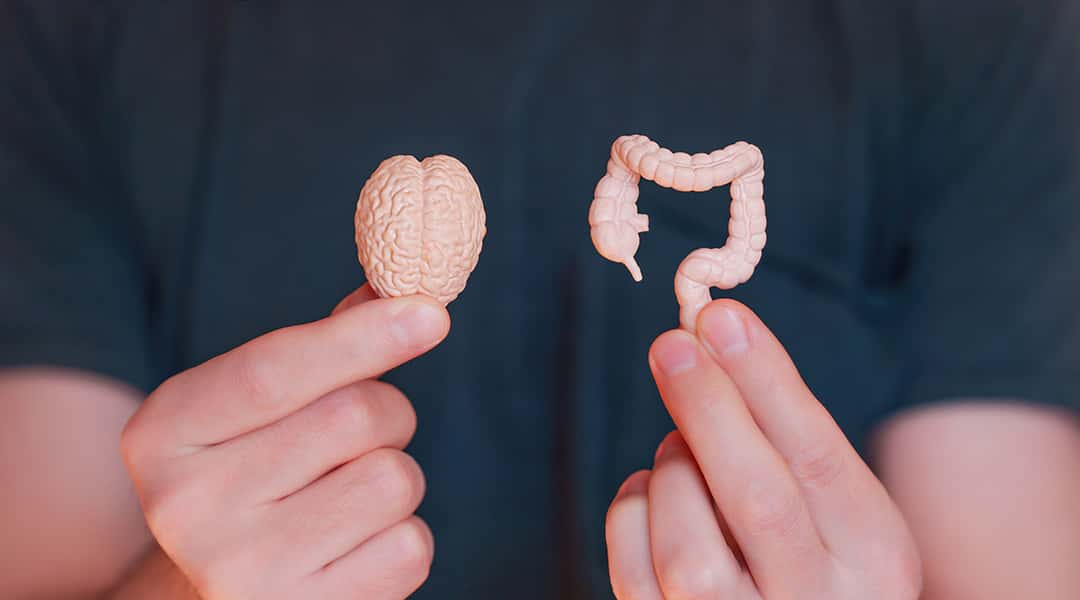Managing Stress and Tough Times with Ayurveda
Managing Stress and Tough Times with Ayurveda

In today’s fast-paced world, stress has become an unavoidable part of life. Balancing work, relationships, and personal well-being can leave us feeling overwhelmed, drained, and anxious. While modern medicine offers various solutions to manage stress, Ayurveda, the ancient science of life, provides a holistic approach that not only helps us cope but also prevents stress from taking root in the first place. Let’s dive into how Ayurveda addresses stress management and promotes emotional resilience by understanding individual constitutions, lifestyle changes, and the use of natural remedies.
What are the Most Common Signs of Stress from an Ayurvedic Perspective, and How Can Individuals Identify Them Early?
Ayurveda views stress as a disruption in the balance of the three doshas: Vata, Pitta, and Kapha, which represent the foundational energies in the body. Each individual has a unique dosha constitution that influences how they experience stress. Here are the common signs of stress according to each dosha, along with ways to recognize them early:
- Vata Imbalance: Vata governs movement, creativity, and communication, but when out of balance, it leads to feelings of fear, anxiety, and restlessness. Early signs of stress in Vata types include racing thoughts, difficulty focusing, forgetfulness, insomnia, and a sense of overwhelm. Physically, you might notice cold hands and feet, dry skin, or irregular digestion. Recognizing these signs early allows for interventions like grounding practices and calming routines to bring Vata back into balance.
- Pitta Imbalance: Pitta governs heat, transformation, and intensity. When Pitta becomes aggravated, stress manifests as irritability, frustration, and anger. Early signs include impatience, criticism of self and others, increased competitiveness, and perfectionism. Pitta types under stress often experience physical symptoms such as acidity, heartburn, and inflammation. It’s crucial to cool down Pitta’s fiery nature with calming practices and cooling foods before stress escalates into burnout.
- Kapha Imbalance: Kapha, associated with stability and structure, can lead to feelings of lethargy, emotional heaviness, and withdrawal when unbalanced. Early signs of Kapha-related stress include excessive fatigue, lack of motivation, emotional eating, and a tendency to isolate. Physical symptoms often involve weight gain, congestion, and sluggish digestion. By recognizing these signs, Kapha types can incorporate stimulating activities and lighter diets to prevent the stress from deepening into depression or inertia.
Being mindful of these early signs helps individuals prevent stress from spiralling out of control. Ayurveda encourages self-awareness and listening to your body’s signals as the first step in managing stress effectively.
How Does Ayurveda Approach Stress Management Differently Compared to Modern Medicine?
While modern medicine focuses primarily on symptom relief—whether through medication or therapies—Ayurveda takes a root-cause approach to healing. Rather than treating stress as an isolated mental condition, Ayurveda views stress as a mind-body imbalance. It looks at physical, emotional, and spiritual factors to understand why stress occurs and how to address it holistically.
Modern medicine may recommend anti-anxiety medications, antidepressants, or cognitive behavioral therapy (CBT) to manage stress. While these treatments can be effective for short-term relief, they often do not address the underlying lifestyle and physiological imbalances that cause stress. Moreover, medications may come with side effects or dependency issues.
Ayurveda’s approach, on the other hand, focuses on:
- Personalized Treatment: Ayurveda recognizes that no two people experience stress in the same way. It considers the individual’s dosha constitution and current state of imbalance when prescribing treatments, ensuring that the approach is deeply personalized.
- Preventive Care: Ayurveda is proactive, offering lifestyle modifications and stress-reducing practices to prevent stress from occurring in the first place. By maintaining daily routines (dinacharya), following a dosha-appropriate diet, and incorporating mindfulness practices, Ayurveda aims to build resilience against stress.
- Holistic Healing: Ayurvedic treatments target the body, mind, and spirit simultaneously. This could include herbal remedies, yoga, meditation, breathwork (pranayama), and even spiritual practices like mantra chanting to align one’s energy and mental state.
In essence, while modern medicine may offer short-term solutions, Ayurveda’s long-term, holistic approach is designed to cultivate lasting emotional resilience and well-being.
What Specific Herbs or Ayurvedic Treatments Help in Reducing Cortisol Levels and Calming the Nervous System?
Cortisol, the body’s primary stress hormone, can have damaging effects when consistently elevated. Ayurveda offers a range of herbs and treatments that not only reduce cortisol but also strengthen the nervous system. Some of the most effective remedies include:
- Ashwagandha: Perhaps the most popular herb in Ayurveda for managing stress, Ashwagandha is an adaptogen, meaning it helps the body adapt to stress by balancing cortisol levels. It enhances mental clarity, boosts energy, and fosters emotional stability, making it ideal for long-term stress management.
- Brahmi: Known as a brain tonic, Brahmi works wonders in calming the nervous system. It supports cognitive function, reduces anxiety, and helps improve concentration, making it an excellent remedy for Vata-related stress.
- Tulsi (Holy Basil): Tulsi is revered in Ayurveda for its ability to combat stress and anxiety. It acts as a natural adaptogen, promoting emotional balance and reducing the harmful effects of stress on the body.
- Shankhpushpi: This herb is excellent for calming the mind and nervous system, reducing anxiety, mental fatigue, and insomnia. It helps lower stress-induced high blood pressure and improves sleep quality.
- Abhyanga (Oil Massage): A daily self-massage with warm oil is a deeply nourishing practice in Ayurveda, especially for calming Vata dosha. The oils penetrate the skin to pacify the nervous system, relax the muscles, and ground the mind.
- Shirodhara: In this relaxing therapy, a continuous stream of warm oil is poured over the forehead, calming the mind and balancing the nervous system. Shirodhara is particularly beneficial for those experiencing chronic stress, anxiety, or insomnia.
These herbs and treatments provide deep nourishment for both body and mind, helping to reduce stress and promote relaxation naturally.
Can You Share Daily Practices or Rituals in Ayurveda that Promote Emotional Resilience During Tough Times?
In Ayurveda, daily rituals (dinacharya) are essential to creating emotional stability and resilience. Incorporating these practices into your daily routine can help you navigate tough times with greater ease:
- Morning Routine: Ayurveda suggests starting the day with a moment of calm. Upon waking, take a few moments to practice deep breathing or gentle stretching to set a positive tone for the day. Meditation or mindfulness practice is also highly recommended to create mental clarity and emotional balance.
- Abhyanga (Self-Massage): Performing a daily oil massage before showering helps calm the mind, nourish the body, and reduce anxiety. Choose oils like sesame or almond, which pacify Vata and provide a sense of grounding and stability.
- Eat Warm, Nourishing Foods: Ayurveda emphasizes the importance of a sattvic (pure and balanced) diet for emotional well-being. Avoid processed, cold, or excessively spicy foods, which can aggravate stress and dosha imbalances. Instead, choose warm, easily digestible foods like soups, stews, and whole grains, customized to your dosha.
- Herbal Teas: Sipping calming herbal teas throughout the day—such as chamomile, Tulsi, or Brahmi—can help reduce stress, improve digestion, and create a sense of emotional ease.
- Pranayama and Meditation: Practices like Nadi Shodhana (alternate nostril breathing) or mindfulness meditation can quiet the mind and restore balance. These are excellent tools to reset during moments of stress or tension.
- Wind Down Before Bed: Ending the day with relaxation is just as important as starting it right. Engage in calming activities like reading, journaling, or gentle yoga to release stress and prepare the mind for restful sleep.
These simple but powerful rituals, when practiced consistently, help build emotional resilience and reduce the impact of stress over time.
How Can We Incorporate Ayurvedic Mindfulness Techniques into a Modern, Fast-Paced Lifestyle?
The beauty of Ayurvedic mindfulness techniques is that they are adaptable, even in a busy lifestyle. Here’s how you can bring mindfulness into your daily routine without making drastic changes:
- Mindful Eating: In the rush of modern life, meals often become hurried affairs. Ayurveda encourages mindful eating—paying full attention to your food, chewing slowly, and savouring each bite. This not only improves digestion but also creates a mindful break in your day.
- Pause for Breath: Incorporate short moments of breath-work into your routine. Whether it’s taking three deep breaths before a meeting or practicing pranayama during lunch breaks, these small pauses can have a big impact on your stress levels.
- Mini Digital Detox: Ayurveda stresses the importance of disconnecting from screens. Allocate even 10-15 minutes in the evening for a digital detox to let your mind decompress. Use this time to journal, meditate, or simply rest.
- Gratitude Practice: Before bed, take a moment to reflect on the positive aspects of your day. A simple gratitude practice can shift your mindset away from stress and foster emotional balance.
Even amidst a fast-paced life, these mindful practices offer a refuge of calm, helping you stay grounded and centered.
What Role Do Individual Constitution Types (Doshas) Play in Stress Management, and How Does Ayurveda Personalize Treatments for Each?
Ayurveda’s approach to stress management is unique because it tailors treatments based on each individual’s dosha constitution. Here’s how stress affects each dosha and the corresponding remedies:
- Vata Dosha: Vata types tend to experience anxiety, fear, and overthinking when stressed. To manage Vata-related stress, Ayurveda recommends grounding practices such as regular routines, warm oil massages, and a diet rich in warming, nourishing foods. Herbs like Ashwagandha and Brahmi are especially beneficial for calming Vata’s restless energy.
- Pitta Dosha: Pitta types often become irritable, frustrated, or angry under stress. They benefit from cooling practices like meditation, spending time in nature, and incorporating cooling herbs like Shatavari and Aloe Vera. A Pitta-balancing diet, rich in hydrating, cooling foods such as cucumbers and coconut, can also help manage stress.
- Kapha Dosha: Kapha types may withdraw or become lethargic when stressed. To counteract this, Ayurveda recommends stimulating practices like vigorous exercise, dry brushing, and the use of spices such as ginger, cinnamon, and black pepper in meals. Kapha types should also avoid heavy, oily foods and focus on a light, vibrant diet.
By personalizing stress management based on one’s dosha, Ayurveda offers a more effective and sustainable way to maintain emotional balance.
Ayurveda’s holistic approach to mental well-being offers profound tools for managing stress in today’s challenging world. By identifying early signs of stress, incorporating daily practices, using herbal remedies, and understanding your unique constitution, you can cultivate emotional resilience and navigate tough times with greater ease. Whether you have a Vata, Pitta, or Kapha constitution, Ayurveda’s time-tested wisdom offers a path toward balance, calm, and inner peace.
Speak with our experienced Ayurvedic Doctors, today to learn more about Ayurvedic wisdom for maintaining mental well-being. Team ASHAexperience offers ancient Ayurvedic treatment and practices to the world for a sustainable society by offering self-care practices through Ayurveda and Yoga.
We believe in collaborative relationship-based care where our Ayurvedic Doctors, Ayurvedic Practitioner, Ayurvedic Supplement Brands, Ayurvedic Nutritionists & Chefs, Yoga, and Meditation Trainers are in sync. Contact the team who passionately works together to hold your hand in this healing journey.





